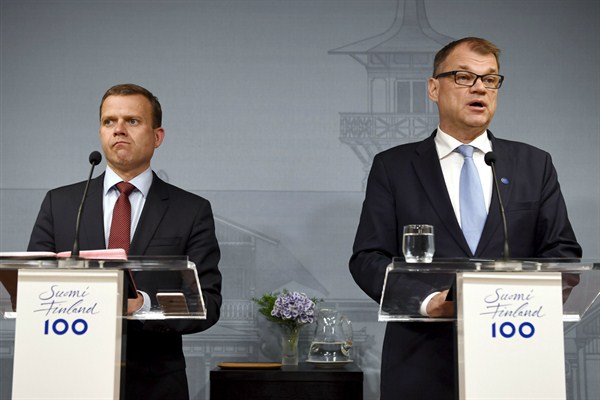Finland is currently conducting a trial to measure the effects of Universal Basic Income (UBI), though the project has been criticized by some as poorly designed. Writing in the New York Times last week, Antti Jauhiainen and Joona-Hermanni Makinen said the sample size was “too small to be scientifically viable.” In an email interview, Heikki Hiilamo, a professor of social policy at the University of Helsinki, describes the concepts underpinning UBI, how Finns are responding to the trial and what it is intended to measure.
WPR: What is the objective of Finland’s pilot study on universal basic income, how much of the workforce is involved, and what would need to happen for the national welfare body to determine the study a success?
Heikki Hiilamo: Beginning this year, the Finnish government is experimenting with a pilot program offering individuals a partial guaranteed basic income. A sum of 560 euros, or roughly $600, per month will be paid to a randomly selected group of 2,000 unemployed Finns. This experiment will continue through 2018, and its results will be assessed in 2019.

